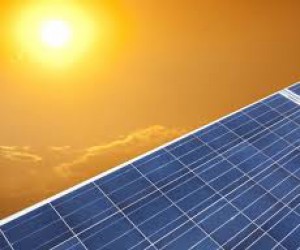Eskom's 8% average increase of energy prices per annum over the next five years, petrol price hikes, the increase of farmworkers' minimum wage, as well as the e-tolling regulations in Gauteng, will all add to the increasingly high input costs across the agricultural sector, all of which farmers continue to battle to contain.
According to Arthur Chien, CEO of Talesun Energy, a leading supplier of solar energy solutions, some of these costs can be alleviated, especially electricity is one cost that farmers can reduce and do have control over.
“Renewable energy solutions allow farmers to reduce energy costs and protect themselves against energy shortages and price increases. Crop irrigation, for instance, is a key energy concern for farmers, as the action of pumping water around the farmland can utilise a great amount of energy.”
Chien says renewable energy such as solar PV, allow farmers to pump water throughout the crops at a reduced cost. He also points to the example of poultry farms, which require constant ventilation and lighting, and can be the most expensive elements of an agricultural business.
The benefits of solar PV within the agricultural industry, according to Chien, include providing energy for light, heat, irrigation, feeders, ventilation and other processes. “Solar PV can be integrated into a farm’s electrical distribution, helping to decrease the overall costs of large energy bills. It also lowers the carbon emissions on a farm, which increase an establishment’s green credentials. Furthermore, solar panels are low maintenance, have no moving parts that can wear out over time and aretherefore very reliable.”
Chien says that there is no need for farmers to build additional structures in order to make use of PV solar power, as all that is needed is a solid roof or an open piece of land for a ground-mounted system. “Farmers are well positioned to benefit from solar PV systems with the large amount of roof space available on the roofs of farm barns, stables and houses, and can harness solar power well due to their often vast exposure to the sun.”
He advises that should farmers be serious about investing in solar PV, they first need to ensure that they conduct efficient research on the selected solar PV company. “Choosing the right renewable company, one that will be there in the long-term, is the key criteria when seeking professional advice and renewable energy.”
Chien says that the following check list should be reviewed before pursuing renewable or solar energy installations:
• Solar panels need to be able to provide the best performance to help ensure economic payback of the power produced. It is therefore important to select a solar energy supplier that uses panels that are high quality. The quality of the panels can be determined by the brand, the durability and longevity of the panels, whether they are able to withstand harsh weather conditions, as well as any certifications the company and its products might have. Low-quality panels can get damaged easily, and this will affect function and efficiency.
• Panels installed on top of livestock barns should be tested for their resistance to ammonia, salt and mist corrosion.Ensure that the solar PV company conforms to the Quality Tested Certificate for passing the salt mist, ammonia corrosion test. Panels need to be able to withstand high mechanical load strength of 5400 pascal (Pa) in accordance with the requirements and conditions set out by the International Electrotechnical Committee (IEC).
• See that the solar modules come with at least a 10 year product guarantee.
• Ensure that the modules are protected against fire damage.
• Check with authorities whether planning permission is required.
• Check that the the solar modules have undergone a PID test at 85 degrees celsius to ensure that modules can withstand South Africa’s hot climate; and
• Ensure that warranty details on product and workmanship are clarified.










